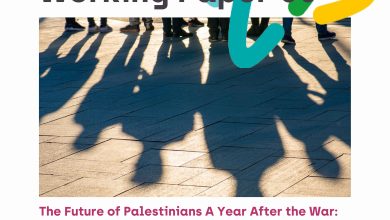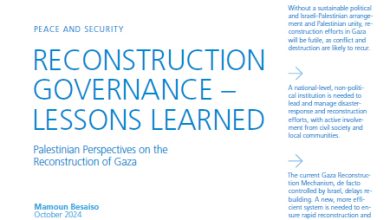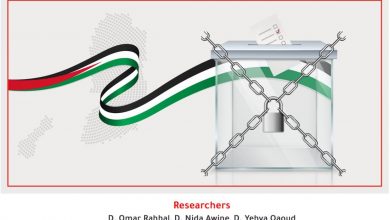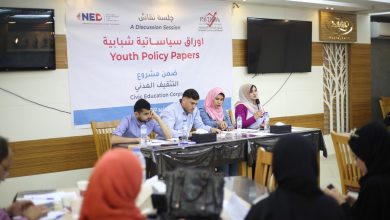A Seminar Entitled “Promoting Grass-Roots and International Efforts Toward the Risks of Nuclear Weapons in the Middle East and the Problems of Proliferation”

 [highlight]Monday, 12 November, 2012 – Gaza[/highlight]
[highlight]Monday, 12 November, 2012 – Gaza[/highlight]
The Pal-Think Center for Strategic Studies aims to promote critical thinking and constructive discussion of the issues of concern to the Palestinian situation. Pal-Think held a seminar on the possibility of freeing the Middle East from nuclear weapons in the Al-Quds International Hotel in Gaza in the presence of many dignitaries, academics and professionals, along with the participation of members of the United Nations Association Scotland and UNA-Edinburgh through video-conference technology. The UNA Scotland representative Dr.Gari Donn noted at the beginning of her speech that any city in the Middle East would be completely destroyed by the explosion of a single nuclear weapon and radioactivity would be spread throughout the surrounding country-side. Israel apparently possesses some 200 atomic bombs. Donn touched on many countries such as the United States of America, that maintains these weapons through fleets stationed in the Middle East, and said that NATO stores a similar number of bombs in Incirlik in southern Turkey. In addition, there is the serious concern of Iran’s current efforts to produce nuclear bombs. On the other hand, she suggested that a timtable should be prepared including a timetable for Israel to put its nuclear facilities progressively under IAEA safeguards. Furthermore, she stressed the need to press the Helsinki Conference to set in motion a multi-track confidence-building process and establish a group of regional, technical and scientific experts to discuss verification, monitoring and technical issues and the underlying challenges to avoid political traps, as well the emphasising the involvement of civil society and such individuals as youth and women to put pressure on governments. “Awakenings” in many Middle East countries should reduce nuclear weapon risks. The path to removal of Weapons of Mass Destruction might well be through mutual security, human rights and humantirarian issues.
Mr. Iyad Abu Jaber, Researcher in Political Science, provided a working paper. He described the history of the nuclear era, how the U.S.A hit each of the Japanese cities of Hiroshima and Nagasaki with a nuclear bomb, and then, through the establishment of a bipolar international system and the outbreak of the Cold War, there was escalating production and proliferation of nuclear weapons weapons around the world. In the same context, the growing capability of the Israeli nuclear arsenal, in the light of Israeli arrogance to satisfy their national interests, formed the largest threat to the Middle East region.. The Researcher pointed out that there are many examples, regional and international, of the establishment of Nuclear Weapon Free Zones (NWFZs). The United Nations has played an important role by establishing 25 projects, all near solution, though, as a result of international obstacles notably in the Middle East, only 4 nuclear free zones (please check this) have actually been set up.
Abu Jaber added that the Middle East problematic lies in the geographically undefined landmarks of the region. In addition, strategic complexities (including assymetric defences??) prevent real compatibility between key countries. The rigidity of the Israeli position makes the immediate establishment of a NWFZ imposible. In addition there are the obvious existing regional political and military conflicts and their implications – the Arab-Israeli conflict and the Israeli-Iranian nuclear arms-race which is based on Israel’s monopoly of a huge nuclear arsenal. On the other hand, Iran is seeking to develop its nuclear energy program – a matter of political rather than technical importnance. Finally, the Researcher considered that a future NWFZ Middle East would reduce the proliferation of these weapons and create a balance of forces. In the near term there is no possibility of the establishment of NWFZ in the region but in the long term the emergence of a new Arab or Muslim nuclear power could create the appropriate conditions.
Dr. Adnan Abu Amer a Professor of Political Sciences provided a comprehensive perspective of the nuclear issue in the Middle East in the light of the continuing political changes. He added that the USA accepts the existing nuclear energy programs of Muslim countries and does not have any real trouble with Iran since a war would be costly and the results would exceed any imagined limits. So, given the impact of Obama’s U.S.A election victory, Abu Amer doubted that the US administration would consider any option of starting a new war, a war which would inevitably be comprehensive and destructive. In contrast, the Iranian view in terms of sectarian and nationalist sides that the foreign war did not come up in their agenda, and that the Israelis believe that prejudice Iran may stimulate its allies in the region such as Syria and Hezbollah in Lebanon to meet the call Ayatollah go into this adventure. (I don’t understand this sentence, sorry)
Abu Amer considered also the possibility of Iran clashing with US. forces stationed in the Arabian Gulf and the Strait of Hormuz in particular. At the end of his speech, he supposed this last scenario to occur as a ‘silent war’ through technological and electronic attacks without the use of shooting. Such a war would, in the long run, cost Iran significantly. It might also involve assassinations, to which Tehran is no longer immune. Moreover, tightening of the economic blockade and provoking instability in the Iranian internal situation – as in the Arab spring – will widen the gap between the leader and the Iranian presidency.







